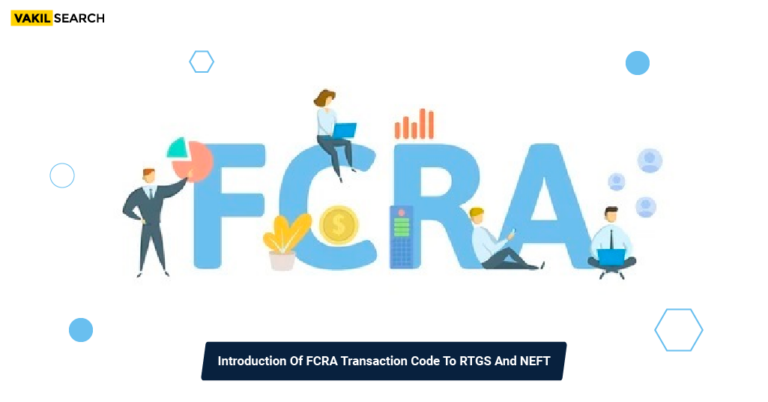NGOs and CBOs are the types of organisations that society needs and leans on in times of crisis. While both work for the welfare of society, there is a difference between their scope of work and their legal status.
NGO and CBO – NGO specifically refers to a non-governmental organisation with no government affiliation and usually works for a cause. CBO stands for a community-based organisation whose scope is restricted to an area. They share a similar motive – performing social service and improving society. Whenever there are issues regarding social, economic, spiritual, and emotional consensus, these kinds of organisations fight for the cause they believe in.
NGO stands for non-governmental organization, or non-profit organization. Community-based organizations are also known as CBOs. Their common goal is to promote the welfare of society and the people. There are many social, economic, spiritual, and emotional problems in the world today.
What is CBO?
A Community-Based Organisation (CBO) is a grassroots-level initiative formed and operated by community members. Functioning locally, CBOs uniquely address the specific needs of their community, emphasising community participation, self-sufficiency, and collective decision-making. These organisations empower community members to actively engage in shaping and implementing solutions, fostering a sense of ownership and shared responsibility for the betterment of the community.
CBOs adhere to key principles, prioritising community participation in decision-making processes. They aim to reduce dependency on external resources by promoting self-sufficiency within the community. Through an inclusive and democratic approach, CBOs play a pivotal role in addressing the distinct needs of their locality, contributing to sustainable grassroots development.
What is an NGO?
A Non-Governmental Organisation (NGO) stands as an independent and non-profit entity, free from government control. NGOs operate on diverse scales, engaging in the comprehensive addressing of social, environmental, or developmental issues. Their significance lies not only in their commitment to implement tangible solutions but also in their active roles as advocates and influencers of policy. By operating independently, NGOs bring a dynamic and often innovative approach to societal challenges, making substantial contributions to the realms of social welfare, environmental sustainability, and developmental progress.
NGOs play a crucial role in advocating for positive change and influencing policies that contribute to the greater good. Beyond their hands-on involvement in addressing critical issues, they serve as agents of change on a broader scale, fostering awareness, and often acting as intermediaries between communities and governing bodies. The multifaceted nature of NGOs positions them as instrumental actors in promoting social justice, environmental sustainability, and overall human development.
Types of NGO and CBO
Types of NGOs, they are trusts, societies or Section 8 companies are formed with a particular cause in mind. The organisation’s work and activities aim to promote that cause or achieve goals about that cause. For example, if A starts an NGO to promote street artists, their tasks will revolve around funding street artists, creating awareness among people about the value of street artists, and trying to provide exposure for these artists.
CBOs, on the other hand, focus on a locality. The aim is to improve lives in that locality in general, or in any one aspect. Say, B starts a CBO to improve the environmental impact in a city. This CBO will take up activities like planting more trees, waste management in the area, setting up recycling plants, etc.
Organisation Structure
An NGO is a full-fledged organisation that comprises members who are similar to employees. NGOs have a proper organisational structure and are usually registered and legalised as an entity. It can collect funds and avail tax deductions for those. NGOs work on large scales and thus they have more synchronisation and assertion as a team. They work under the guidance of a specific hierarchy monitoring them.
Community-based organisations are made of people from the locality who come together to support a particular cause in a specific area. They are not legalised by any custom, duty, or memorandum. They are liberal to process their actions without any restrictions.
NGO and CBO of Legal Prospects
The fundamental difference between NGO and CBO are their legal frameworks. A non-governmental organisation will constitute a legal memorandum and an adequate structure of members.
The community-based organisation is not led by any legally bound criteria. It is established randomly without ascertaining the foundations of legal norms. It is more like an informal group of people who take good actions for the betterment of a small community.
Work Criteria of NGO and CBO
The work of an NGO is allocated to wider prospects whereas CBOs work for specific communities only. NGOs can work for chains of states and deal with the problems prevailing there.
For example, when a natural calamity hits a state, NGOs from anywhere can take up tasks to reverse the situation back to normalcy. While in those cases, a CBO usually looks at the damage in their area and focuses on fixing it. However, there is no hard and fast rule that a CBO cannot take up social work in other areas.
Generally, NGOs look to scale their activities over time to promote their cause, on the other hand, CBOs are formed to improve an area and have no intention to scale. CBOs can jump into action in times of need, but that is not in their agenda or vision for the organisation.
NGO and CBO Sources of Funding
NGO And CBO are similar when it comes to the modes of funding. They usually don’t have a steady stream of funds pouring in through a business (while that is an option). Rather, they depend on donations from people who are willing to spare money for the cause. Sometimes they get funding from corporations, celebrities or even the government. Although, most small CBOs get their funding from their community itself.
Both of these entities do not work to make profits. They use the funding they receive solely on the causes for which they work. Sometimes, there is a sharp spike in funding during times of distress as these are the organisations that come forward to help people in times of need and emergency.
Advantages of NGO and CBO:
Advantages of NGO:
- Expertise and Resources:
- NGOs often possess specialised knowledge and resources, allowing them to tackle complex issues effectively.
- Global Reach:
- Many NGOs operate internationally, enabling them to address global challenges and collaborate across borders.
- Advocacy and Lobbying:
- NGOs can engage in advocacy and lobbying activities, influencing policy decisions and promoting social change.
Advantages of CBO:
- Community Empowerment:
- CBOs empower communities through direct involvement, fostering a sense of ownership and self-reliance.
- Tailored Solutions:
- CBOs understand and address specific community needs, offering context-specific and culturally sensitive solutions.
- Cultural Sensitivity:
- CBOs have an inherent understanding of local culture, ensuring interventions align with community values and traditions.
Similarities between NGO and CBO:
| Aspect | NGO (Non-Governmental Organisation) | CBO (Community-Based Organisation) |
| Social Impact | Both aim to create positive social impacts, whether locally or globally. | Shared commitment to improving societal well-being and community life. |
| Non-Profit Nature | Operate as non-profit entities, utilising resources for societal betterment. | Shared commitment to utilising resources for the community’s benefit. |
| Volunteer Participation | Rely on the active participation of volunteers dedicated to the organisation’s mission. | Emphasise community involvement, encouraging residents to actively engage. |
Difference Between NGO and CBO:
| Aspect | NGO (Non-Governmental Organisation) | CBO (Community-Based Organisation) |
| Formation and Ownership | Formed independently, often with external funding and leadership. | Initiated and managed by community members, reflecting local ownership. |
| Scope of Operation | Operates at various levels, addressing regional, national, or international issues. | Primarily operates locally, focusing on specific community needs. |
| Decision-Making Structure | Formal organisational structure with defined hierarchies. | Emphasises community participation, fostering a democratic approach. |
| Resource Dependency | May rely on diverse funding sources, including international donors. | Tends to depend more on local resources and community contributions. |
| Advocacy and Policy Influence | Often engaged in advocacy, policy influence, and global issues. | Advocacy may be localised, with a direct focus on community concerns. |
| Objective and Focus | Diverse objectives, addressing a wide range of societal issues. | Specific focus on local community needs, tailoring solutions accordingly. |
Conclusion
While there are some differences in their structure and legal status, these organisations are flag bearers of goodness, humanity, brotherhood, solidarity, and compassion in our society. Even during the times of this pandemic, it was NGO and CBO that came forward for the relief work that people needed desperately.
So, if you are planning to start an NGO and CBO, we at Vakilsearch appreciate your and applaud your good intent. We can help with setting up an NGO by making NGO registration easy for you.
FAQs – NGO And CBO
What does CBO mean in NGOs?
In NGOs, CBO often refers to Community-Based Organizations. These are grassroots-level entities formed by community members to address local needs and promote community development.
What is the role of CBOs?
The role of Community-Based Organizations is to operate locally, addressing specific community needs. CBOs emphasize community participation, self-sufficiency, and collective decision-making, fostering positive change at the grassroots level.
What is the meaning of CBO and CSO?
CBO stands for Community-Based Organization, focusing on local initiatives. CSO stands for Civil Society Organization, encompassing a broader range of non-governmental entities working for social change.
What is the full form of CBO in govt?
In government, CBO can stand for different terms depending on the context. Commonly, it refers to Community-Based Organization, reflecting local-level initiatives.
How do CBOs differ from NGOs?
In government, CBO can stand for different terms depending on the context. Commonly, it refers to Community-Based Organization, reflecting local-level initiatives.
How do CBOs differ from NGOs?
CBOs are typically local entities formed by community members to address specific needs, while NGOs operate at various levels, addressing broader social, environmental, or developmental issues.
How are CBOs funded?
Funding for Community-Based Organizations can come from various sources, including local contributions, grants from government agencies, philanthropic donations, and collaborations with NGOs or international donors.
What is the impact of CBOs on community development?
CBOs play a significant role in community development by directly addressing local needs, fostering community participation, and promoting self-sufficiency. Their impact often results in improved living conditions and enhanced community well-being.










